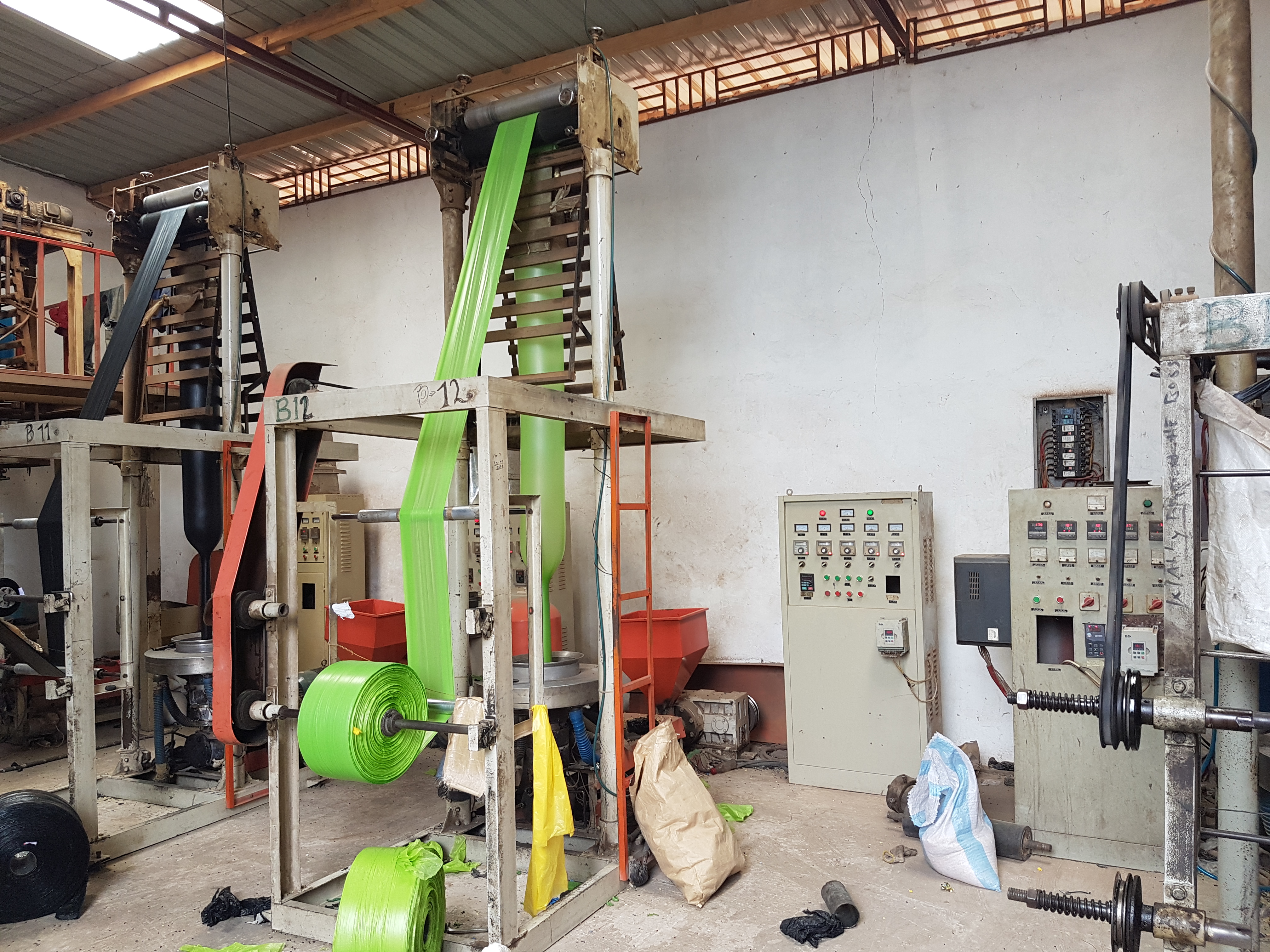Plastics are nuisance for many countries and finding the right solution can be a headache especially for African countries.
But in Ghana a local engineer is turning plastic wastes into an alternative building material for real estate purposes and particularly for road constructions.
Not far from Ghana’s manufacturing hub of Tema lies the small factory belonging to Nelson Boateng, the local engineer.
The Nelplast Ghana Limited factory has been producing polythene bags for more than five years now but the focus is changing.
What happens in the factory?
In the factory, there are three big rooms being used for manufacturing purposes. Instead of expanding its plastic production business the Nelplast factory now turns plastic wastes into a special kind of concrete blocks for construction purposes.

200 blocks are produced on a daily basis by the factory which employs over 60 staff. The factory requires 5kg of plastic to produce one block and Prosper Coffie who is the factory supervisor and administrative secretary shows visitors around the production plants and what happens.
The man behind this project is Nelson Boateng has been telling Africa Feeds about how the recycling process at his factory takes place.
“This one we use all kinds of plastics, even the one in the gutters, where ever it is we don’t mind, we can use it, especially during first Saturdays they do clean ups, we go there we take those sands and plastics they dug out from the gutter
We just take them we dry them, we sieve the sands then we take out the plastics, we just crash the mix and feed it to the shudder which we manufacture ourselves. We have a sand and plastic pester extruder, which we manufacture ourselves here. So we don’t use cement, its just all kinds of plastics excerpts PBC pipes,” he explained.
Why recycle plastics?
Boateng’s decision to switch from making plastic to recycling them is in direct response to concerns raised at this year’s World Economic Forum in Davos, Switzerland.
Experts fear that by 2050, there will be more plastic waste in our oceans than there are fish and this is Boateng’s motivation.
He said “I will turn the plastic waste into something beneficial that’s for our main roads, that cost the government a lot of money, to repair and these same plastics causing floods, the government spending a lot of money to solve all these problems, the sickness that comes out of all of this, when our gutters are choked, that’s how come I came about with this initiative.”
Reaction to initiative
Environmentalist, Justice Adoboe says the initiative is apt and should help protect the environment but hopes other scientists can get on board to conduct more tests to affirm the quality of the product for international acceptance.
“Since plastic is not easily degradable, if it is turned into pavement blocks, because the material itself is not degradable, then that pavement block will be long lasting. They should test it and see its viability, the technological basis for it should also be there, Justice told Africa Feeds.
Ghana is building roads using plastic bags ?? pic.twitter.com/jxIOR3TXlr
— Vala Afshar (@ValaAfshar) April 19, 2018
Currently Boateng and his workers produce on a smaller scale for individual clients who use it for their homes at a cost of less than one dollar per a piece of block. Samples have been laid on some isolated roads in the city.
The government has promised to include his initiative into its flagship but yet to be executed policy of one district one factory. The policy intends supporting local industries grow so they can employ jobless youth.
But Boateng says that help is yet to come and the dream is to eventually expand his production base.
“Currently we are doing two thousand kilos a day of plastic waste. Ghana is just recycling two percent of its wastes. And we want to go beyond fifty percent
That is we will recycle more, employ more youth, and give the government good quality, roads that are cheaper, and durable than the normal asphalt that we spend a lot of money to do it,” Boateng said.
Building roads
Some motorists who have driven on the said sample roads, laid with the plastic blocks had positive things to say
One of them Leslie Quartey told Africa Feeds said “For someone to decide to use plastics as concrete and being used for roads, it’s a very good initiative and actually this one is going to last a little bit longer than even the concrete slops we have in the system.”
“We all know that plastic can resist, the effect or adverse effect of water or rain, in terms of durability, I think it is okay,” Kukuvi Siaw said.
With Ghana yet to ban the use of plastics and the country struggling to clear the already choked drains full of plastics, Boateng’s project could save the ocean and protect the environment while providing jobs for the teeming unemployed youth.
What’s left now is the needed investment both locally and foreign to make this dream a reality.
Source: Africafeeds.com



